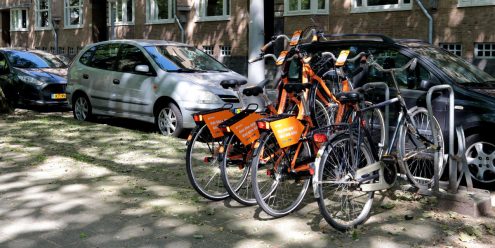
The Amsterdam West district is cracking down on a new player in the bicycle rental market, De Westkrant reports.
Instead of using its own parking facilities, Denmark’s Donkey Republic parks its bright orange rental bikes in the street, often using public bicycle racks. The intended customers for these rental bikes are tourists, as locals already own bikes. Fenna Ulichki of Amsterdam West has now told Donkey Republic that if it doesn’t remove its bikes from public parking spaces, the district will remove the bikes themselves. It is not clear what the legal basis would be for this, considering other company bikes are also parked in public spaces.
Amsterdam is undergoing a double tourism and cycling boom. For example, the city registered four million overnight stays in hotels in 2000, and expects 8 million stays in 2017 (source: Dashboard Toerisme on amsterdam.nl, May 2017). Meanwhile the share of bicycle trips went from about 23% in 2000 to 27% in 2015 (source: Amsterdamse Thermometer van de Bereikbaarheid, amsterdam.nl, 2017). The bicycle is a hit especially among locals—currently 36% of all trips by citizens is undertaken by bike, handily beating out the car (24%).
It is not surprising then that car owners are increasingly satisfied about the amount of parking space they have. If you ask me, instead of framing this as an unsolvable and self-induced bike parking shortage, the city should simply start converting parking spaces for cars into bike racks.
(Photo: three Donkey Republic rental bikes take up most of the space in a bike rack on the Willem de Zwijgerlaan in Amsterdam West. Meanwhile, three cars easily take up three times as much space in the background.)

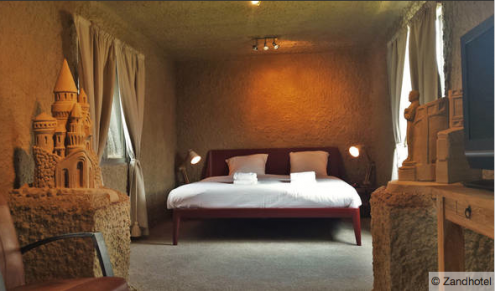
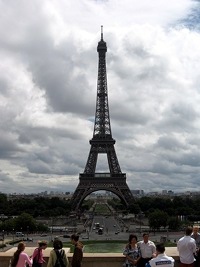
 The film is called Zee op de Heide, ‘Sea on the moor’, which is ironic because Boekelo near Enschede is about as far away to the east of the North Sea as possible in the Netherlands. The video describes the wave pool from about 2 minutes in: “An ingenious construction with two mechanically moving doors creates a real surf.” The hotel was built to give the business people dealing with the nearby salt industry a place to stay, and filling the pool with the salt from nearby salterns must have been a nice gimmick.
The film is called Zee op de Heide, ‘Sea on the moor’, which is ironic because Boekelo near Enschede is about as far away to the east of the North Sea as possible in the Netherlands. The video describes the wave pool from about 2 minutes in: “An ingenious construction with two mechanically moving doors creates a real surf.” The hotel was built to give the business people dealing with the nearby salt industry a place to stay, and filling the pool with the salt from nearby salterns must have been a nice gimmick.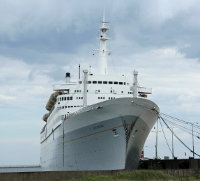 The recently restored former passenger liner SS Rotterdam will stay in the city it was named after,
The recently restored former passenger liner SS Rotterdam will stay in the city it was named after, 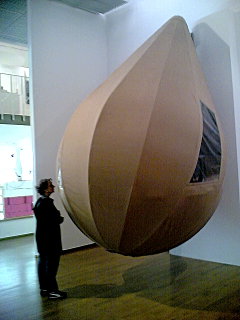 Rotterdam-based artist Dré Wapenaar came up with these tear-shaped tents that can be hung from the stems of trees.
Rotterdam-based artist Dré Wapenaar came up with these tear-shaped tents that can be hung from the stems of trees.
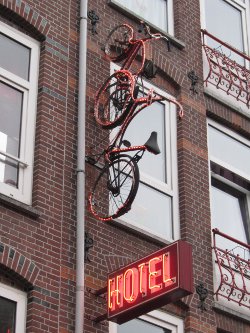
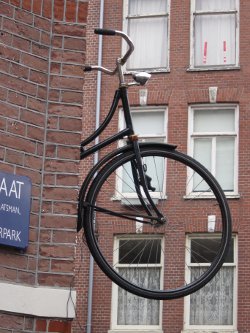
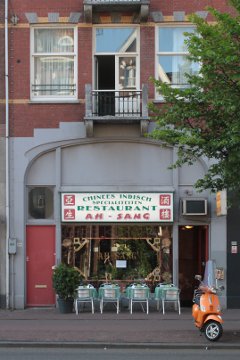 Although Royal Horeca Netherlands has no hard data available, anecdotal evidence leads daily De Pers to
Although Royal Horeca Netherlands has no hard data available, anecdotal evidence leads daily De Pers to